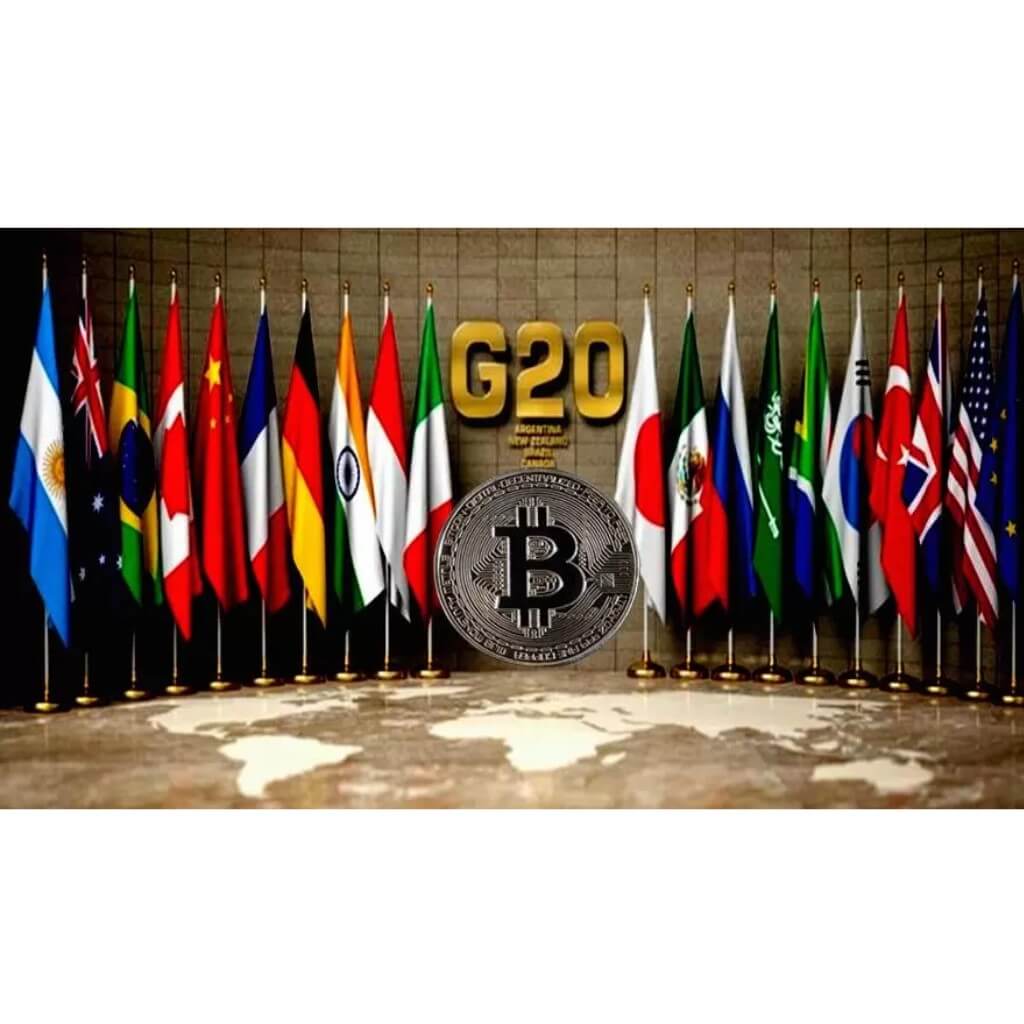The G20’s audacious move toward standardizing the wild west of crypto continues. Dominating headlines from their recent summit in New Delhi, leaders of these powerhouse economies announced a fervent push for a globally cohesive approach to cryptocurrency assets.
An Unapologetic Move Towards Transparency
The G20’s drive isn’t just another lofty political aspiration; it’s a definitive game-changer. The goal? Establish a Crypto-Asset Reporting Framework (CARF) to streamline information exchange between countries by 2027. This move is backed by the weight of G20 nations, housing two-thirds of the planet’s populace.
The idea behind the CARF is commendable, if not long overdue. Initiated by the Organization for Economic Cooperation and Development in 2022, this framework was rolled out with one main objective: granting tax authorities a clear line of sight into the once nebulous world of crypto transactions.
The framework’s reach doesn’t stop there. It also intends to uncover the personalities orchestrating these transactions, drawing back the curtain on transactions often shrouded in mystery.
A major component of this proposal is the annual automated information exchange. This system would encompass crypto transactions occurring on the lesser-known, unregulated exchanges and wallet providers. It’s a wake-up call for the world of crypto — increased scrutiny is coming, and there’s no escaping it.
Bringing a Higher Standard to Crypto Activities
The G20’s endorsement doesn’t end at the CARF. Their ambitious roadmap also incorporates recommendations from the Financial Stability Board. The board’s directive covers the meticulous “regulation, supervision, and oversight of crypto-asset activities.” What’s more? A spotlight on global stablecoin arrangements, which have found themselves under increasing fire lately.
Published mid-last year, these recommendations call for a leveling of the playing field. Stablecoins, under these directives, would need to adhere to standards echoing those of traditional commercial banks. The recommendations boldly demand more stringent oversight, putting the brakes on any activities that impede the clear identification of parties involved.
However, it’s worth noting that this isn’t an entirely new frontier for legislation. The European Union had already taken the plunge earlier this year, unveiling updated rules in alignment with the CARF. These rules dictate an enhanced transparency for digital asset transfers. Any digital asset movement must now be flanked by clear identifying markers – the recipient’s name, their unique ledger address, and even their account number.
Conclusion: A Brave New World for Crypto?
G20 nations, with their vast populations and economic clout, have a historic opportunity to mold the crypto space. But with great power comes monumental responsibility. Their decisions could shape the future of digital transactions and redefine the rules of engagement for crypto enthusiasts and skeptics alike.
However, while the intentions seem clear-cut, the execution remains to be seen. Setting global standards is one thing; enforcing them is a whole different ballgame. As the G20 sets this bold course, the world watches with bated breath. Will they follow through with their lofty promises or will this be another case of all talk, no action?
Only time will reveal the full implications of the G20’s audacious plans. The crypto universe, notorious for its volatility, now faces a new kind of unpredictability – the might of global governance. The next few years promise to be a rollercoaster ride, and as always, it’s the brave, outspoken, and critical voices that will keep the debate alive and kicking.





